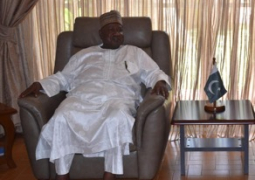
The bridge facilitates movements of people, goods and vehicles from the North Bank to the Lower River Region of the country.
A document revealed by the GTU indicates that motorcycles and taxis should pay a tariff of D50; Small cars/4-7 D200; Jeep 4x4/8-14 passenger D250; LCV/minibus D400; Bus and Truck D1000; and Trucks with trailer D1800. However, such a tariff is yet to be implemented.
According to the GTU, the tariffs that were agreed on were never implemented by the government and is one of the reasons for the sit-down strike. The union therefore called on the government to fulfil their promises in order to avoid confrontation.
"See the agreement we had with the government through the Ministry of Transport including the Ministry of Finance and relevant stakeholders during our engagement between the Transport Union and the government, on the 31st of May 2022. This was the Senegambia bridge tariff approved by the Gambia government and a letter was sent to us. This has never been implemented and since then, we are raising concerns about the approved tariff to be implemented," the Union stated.
Meanwhile, Essa Drammeh, the director of Transport at the Ministry of Transport, Works and Infrastructure, while reacting to this, explained that the circulating letter let the Accountant General, who manages the toll plaza at the Bridge use the new tariff that was agreed between them.
“The accountant general has a challenge in implementing that tariff. So they cannot say we don’t honour the agreement because we convened our approval to the Accountant General for approval.”
“There was no timeline for the implementation of the agreement and the Accountant General cannot be blamed as well,” Mr. Drammeh said.
“The most important thing is that we agreed to use a particular tariff,” he said, adding that GTU's reaction to the agreement is misleading while stating that the letter even vindicates the Ministry of Transport.
Drammeh confirmed that they are responsible for tariffs but another institution is also responsible for revenue. He added that if that institution feels that the tariff has a negative effect on the revenue, they can also have their reservation.
“The best thing is for the two institutions to sit together and agree on terms. Agreeing with the GTU doesn’t mean that the tariff has to be automatically used because we will have to look into the impact.”




